- Category: ACADEMIC
- Written by Mohd Afif Md Jamel Khir
List of Schools in UniMAP
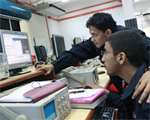 1. School of Computer & Communication Engineering
1. School of Computer & Communication Engineering
The School of Computer & Communication Engineering was established on 30th April 2002. The School of Computer and Communication Engineering adheres to the philosophy that emphasizes the importance of setting up coppermine integration of knowledge, skills and practices that make the concept a true appreciation of science. The foundations of knowledge combined with good values of life that intellectual culture can be fostered and digested to form a way of life that is dynamic, progressive and civilized.
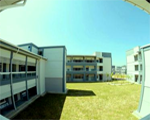 2. School of Microelectronic Engineering
2. School of Microelectronic Engineering
School of Microelectronic Engineering (SoME), among the pioneer schools established in UniMAP, is a comprehensive institution, offering formative undergraduate degrees with research and design elements. Our undergraduate degrees provide the opportunity to gain knowledge and develop personal skills on an intensivehigh-quality programme at the cutting edge of technology.
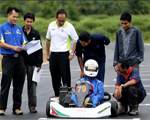 3. School of Mechatronic Engineering
3. School of Mechatronic Engineering
School of Mechatronic Engineering was established in 2003 to meet Malaysia growing needs of professionals – particularly in the field of electromechanical, mechanical and biomedical electronics engineering. This is in-line with industries demands coherent with the report of Malaysian Industrial Master Plan (Laporan Pelan Induk Perindustrian). The curriculum has been designed with a balanced emphasis in both theoretical and practical engineering aspects. Additionally, teaching and learning activities are conducted via various approaches, including embedding theoretical knowledge with learning activities using state-of-the-art laboratory equipments. Thus, greatly benefitting UniMAP students and ensuring them in keeping abreast with the latest technological development.
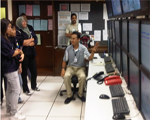 4. School of Electrical System Engineering
4. School of Electrical System Engineering
School of Electrical System Engineering offers four programmes, Bachelor of Electrical System Engineering, Bachelor of Industrial electronic Engineering, Bachelor of Electrical Energy Systems Engineering and Bachelor of Technology in Industrial Power Engineering.
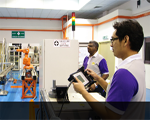 5. School of Manufacturing Engineering
5. School of Manufacturing Engineering
Initially, the School of Manufacturing Engineering, also known as PPKP was established with the name of the School of Manufacturing System Engineering or in short form of PPKSP on March 1, 2003. The school’s new name was then proposed to School of Manufacturing and it has been approved officially by the Ministry of Higher Education dated October 30, 2004. Among the major justification for the changing the name of the school was due to the manufacturing engineering field is larger than the manufacturing systems engineering, or in other words, engineering manufacturing system is one aspect in the field of manufacturing engineering itself.
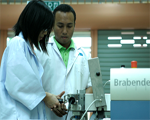 6. School of Materials Engineering
6. School of Materials Engineering
Materials Engineering, Metallurgical Engineering and Polymer Engineering are related to the structure and properties of materials that have engineering applications. Materials Engineer, Metallurgical Engineer and Polymer Engineer are responsible for designing, producing, inspecting and testing of engineering materials such as metal alloys, semiconductors, superconductors, ceramics, polymers, plastics and composites. All three programs emphasize learning and practical courses in all courses offered.
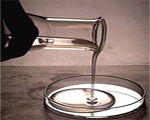 7. School of Environmental Engineering
7. School of Environmental Engineering
The School of Environmental Engineering (PPKAS) was established in January 2006 after approval from the Ministry of Higher Education on 27 October 2005. The environmental engineering programme was first offered in the 2006/2007 academic session. A total of 30 students enrolled into this programme at that time. The first cohort from Environmental Engineering graduated in August 2010. In line with the national industrial growth, the School of Environmental Engineering currently offers two bachelor degree programmes i.e. Bachelor of Engineering (Honours) (Environmental Engineering) and Bachelor of Engineering (Honours) (Building Engineering).
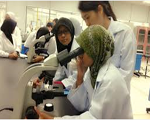 8. School of Bioprocess Engineering
8. School of Bioprocess Engineering
The School of Bioprocess Engineering (SBE) was first established in October 2005 after approval from the Ministry of Higher Education. SBE currently offers four (2) Bachelor’s Degree programmes namely Bachelor of Engineering (Honours) (Bioprocess Engineering), Bachelor of Engineering (Honours) (Biosystems Engineering), Bachelor of Chemical Engineering Technology (Honours)(Industrial Biotechnology) and Bachelor of Mechanical Engineering Technology (Honours) (Agricultural Systems)
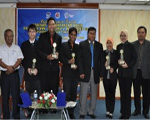 9. School of Business Innovation & Technopreneurship
9. School of Business Innovation & Technopreneurship
School of Business Innovation & Technopreneurship (PPIPT) was approved for inception on June 4, 2010. PPIPT was established to serve as a catalyst in disseminating knowledge in management and business not only to all departments at UniMAP, in particular, the engineering schools but also the society at large. For a list of programs offered, please click here.
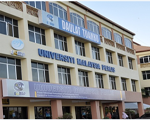 10. School of Human Development and Techno-Communication
10. School of Human Development and Techno-Communication
Welcome to all students to our faculty , our aim is to develops the communication skills of UniMAP students in different fields such as language, Social Communication, culture history and information technologies ideas . Then they will be capable to understand and work easily with outside world and get enough communication knowledge to develops the country and be part of the scientist and inventors in the world.
11. Faculty of Engineering Technology (Fe-Tech)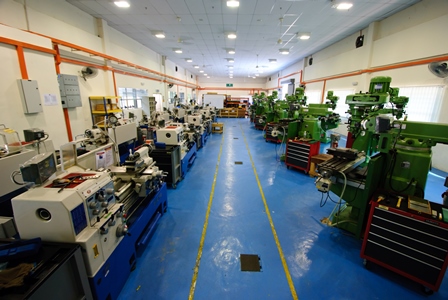
Faculty of Engineering Technology (Fe-Tech) was established at Universiti Malaysia Perlis (UniMAP) in 2013. Its establishment is in line with the objectives of the Technical University in Malaysia under the Malaysian Technical University Network, (MTUN), which is to educate and train highly talented workforce to contribute to the advanced industrial countries, in addition to being a catalyst for national strategies to achieve high-income nation status.
12. Centre of Diploma Studies (CDS)
Centre of Diploma Studies (CDS or PPD) was formally established on 1 April 2006 and placed under the Department of the Deputy Vice Chancellor (Academic & International). In line with the Ministry of Higher Education to UCD offers diploma from the 2006/2007 Academic Session. The rationale through the establishment, CDS will be better able propel diploma programs of the university in addition to providing a wider opportunity for the students to continue their studies at degree level and beyond to meet the aspirations of countries in increasing the number of first class human capital.
